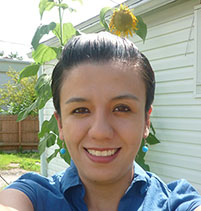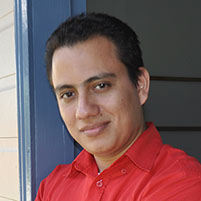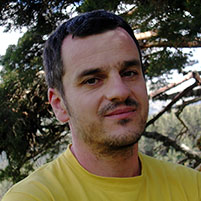Life and Death in Egyptian Arabic
Learn Arabic vocabulary by topic with Arabic script, phonemic transcription (pronunciation), English translation, and audio.

Spanish Voices: Activities Laura
¡Hola! ¿Cómo están? Mi nombre es Laura. Tengo treinta y seis años. Y yo soy de Costa Rica.

Spanish Voices: Activities Jorge
Hola! Soy Jorge. Tengo 26 años. Soy Peruano y nací en Lima.

Spanish Voices: Activities Sandra
¡Hola! Mi nombre es Sandra y tengo 33 años. Yo soy de la Ciudad de México pero actualmente vivo en los Estados Unidos.

Spanish Voices: Activities José
¡Hola! Me llamo José. Tengo treinta y cuatro años de edad. Vivo en la ciudad de La Lima en Cortés, Honduras.

Spanish Voices: Activities Francisco
¡Hola! Me llamo Francisco. Vivo en Madrid, la capital de España, y la ciudad en la que nací.

Spanish Voices: Activities Florencia
¡Hola! Mi nombre es Florencia. Soy de Argentina.Tengo cuarenta y un años.

Top 10 Imperatives in Spoken Arabic
Welcome! Today, we will learn the most important imperative verbs in Egyptian Arabic. It is imperative that you know all of them! ? The first one is…

Only in Egypt
Esraa shares with us some things she thinks are unique to Egypt and teaches us some useful vocabulary in the process.

Key Egyptian Arabic Expression: معلِشّ ma3alíšš
معلِشّ is used to downplay a situation, whether to console, sympathize, or apologize. The word originally comes from the Modern Standard Arabic phrase ما عليه شيء, which literally means nothing against it.

Unit 1: Egypt is the Number One Country to Visit for 2020
Let’s take a look at Unit 1 from the book The News in Modern Standard Arabic.

Key Egyptian Arabic Expression: كِده kida
كِده is likely the most quintessentially Egyptian word there is. Not only is it very high frequency in everyday speech, but it is unique to the Egyptian Arabic dialect. كِده is related to the Modern Standard Arabic word هكذا like this but takes on a range of idiomatic meanings on its own and in phrases.
